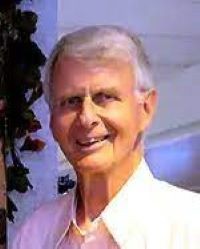By JOHN BARTLIT
New Mexico Citizens
for Clean Air & Water
Last month, “Tales Of Our Times” wrapped up the year by citing the lowlights of political parties’ campaign habits and their effects on the nation and Congress. I assessed no public policies. Rather, I noted the party powers that fester in the dark. Autocracy hides in the rules of Congress conceived jointly by the two rivaling parties. Review here.
Then I quoted the nation’s founders, who saw and feared these dark instincts. As promised, this month we can read deeper warnings from the founders that matched their depth of purpose.
The strong men who gave their all to building governance of the people, by the people fended off devices that work to divide people. The founders clearly saw political parties as divisive. To us, their old-time alarms project fresh views. Their aspects still help. However imperfectly, the founders set the nation on a path that today has crowds of people from abroad waiting in line to join.
Near the end of his second term in office, George Washington, our nation’s first president, issued a Farewell Address to the country. His purpose was to leave the country on a sturdy roadbed.
Washington’s fatherly advice had stern words about political parties. He wrote: “I have already intimated to you the danger of parties in the State, with particular reference to the founding of them on geographical discriminations. Let me now take a more comprehensive view, and warn you in the most solemn manner against the baneful effects of the spirit of party generally.”
Washington’s lengthy concerns over parties concluded:
There is an opinion that parties in free countries are useful checks upon the administration of the government and serve to keep alive the spirit of liberty. This within certain limits is probably true; and in governments of a monarchical cast, patriotism may look with indulgence, if not with favor, upon the spirit of party. But in those of the popular character, in governments purely elective, it is a spirit not to be encouraged. From their natural tendency, it is certain there will always be enough of that spirit for every salutary purpose. And there being constant danger of excess, the effort ought to be by force of public opinion, to mitigate and assuage it. A fire not to be quenched, it demands a uniform vigilance to prevent its bursting into a flame, lest, instead of warming, it should consume.
Within this framework, the Father of Our Country listed some 15 troubling tendencies he saw in party politics: “cunning, ambitious, and unprincipled men would subvert the power of the people and seize for themselves the reins of government.” The parties that would arise would “serve to organize division…ruin public liberty…agitate the community with ill-founded jealousies & false alarms…drive the spirit of revenge…and lead to despotism.”
Washington summed up: “…parties are truly your worst enemy.”
Our nation’s second president, John Adams, wrote in a letter to Johnathan Jackson in 1780: “There is nothing which I dread so much as a division of the republic into two great parties, each arranged under its leader, and concerting measures in opposition to each other. This, in my humble apprehension, is to be dreaded as the greatest political evil under our Constitution.”
Our nation’s third president, Thomas Jefferson, wrote in a letter to Francis Hopkinson in 1789: “I never submitted the whole system of my opinions to the creed of any party of men whatever in religion, in philosophy, in politics, or in anything else where I was capable of thinking for myself. Such an addiction is the last degradation of a free and moral agent. If I could not go to heaven but with a political party, I would decline to go.”
All saw it the same. Our nation’s fourth president, James Madison, wrote an essay known as Federalist No. 10 in 1787. There he argued that one of the most important functions of a “well-constructed Union” was to break and control the “violence of faction.” Madison clearly understood the enormous dangers that could attach to the founding of political parties in America.
Our nation was born in the belief that gathering a broader range of opinions produces better answers. Current parties teach that mixing together ideas from Democrats and Republicans is mostly hopeless and nearly criminal. An honorable mix of opinions would mix together views from people and the founders’ views on a working democracy. The founders gave us a trove of knowledge from their long, slogging war of revolt—with scarce resources—then pulling quarrelsome people together under a Constitution during trying times.
Our country loses by slighting the founders’ hard-won insights into party politics.


